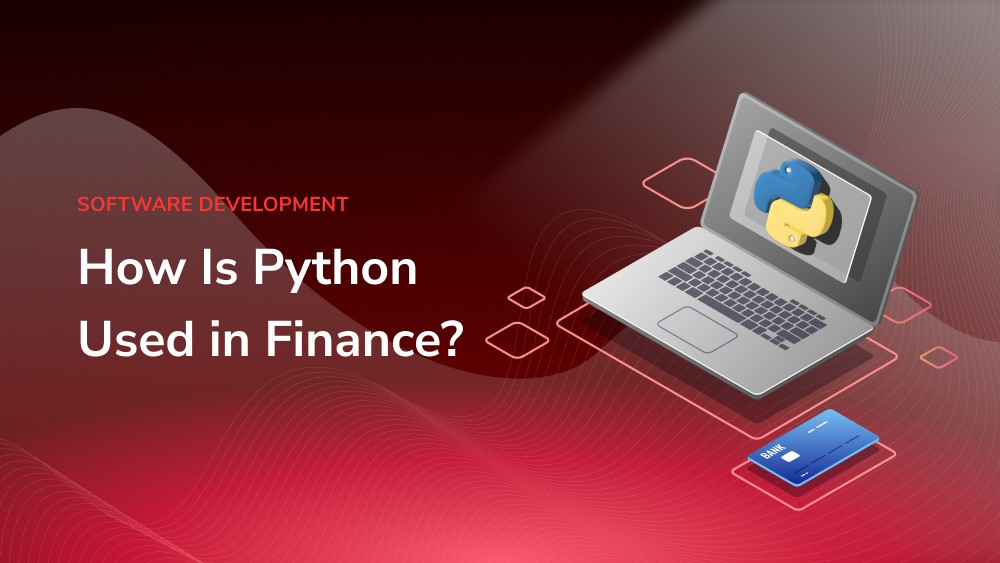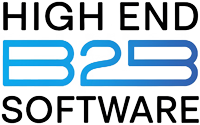In the fast-paced world of finance, software stands as the backbone of daily operations. From big banks to small businesses, the right tools are crucial for success.
The financial sector relies heavily on specialized software to manage money, investments, and economic strategies. This software varies from basic budgeting applications to complex trading systems. Understanding the software used in finance is essential for anyone in the industry. It enables professionals to make informed decisions, analyze market trends, and automate routine tasks.
Whether it’s tracking stock performance or processing transactions, these programs are designed to be reliable and secure. They help in planning, forecasting, and risk management. Each type of software serves a unique purpose and is tailored to meet the specific needs of financial experts. As technology evolves, so too does the software, ensuring that financial operations run smoothly and efficiently. This post will explore the various software tools that keep the financial wheels turning and how they contribute to the industry’s success.
Introduction To Financial Software
The world of finance is complex and dynamic. Financial software simplifies tasks, enhances accuracy, and saves time. Banks, investors, and businesses all rely on it. Let’s explore the role of technology in finance and the various software categories used.
The Role Of Technology In Finance
Technology shapes finance. It turns data into insights and supports decision-making. From automating processes to securing transactions, technology empowers the financial industry.
Categories Of Financial Software
Financial software splits into many types. Each serves unique needs. Here are the main categories:
- Banking Systems: Manage accounts and transactions.
- Payment Solutions: Handle transfers and payments.
- Trading Platforms: Support buying and selling securities.
- Accounting Tools: Record and analyze financial data.
- Risk Management: Identify and mitigate financial risks.
:max_bytes(150000):strip_icc()/erp-4196982-d232fedd39e64910bc29033d4db2e9ca.png)
Credit: www.investopedia.com
Accounting Systems
Today, we dive into the world of Accounting Systems. These systems are crucial for finance. They track money flow. They also manage invoices and expenses. Let’s explore modern accounting software. We will look at their features and some top examples.
Features Of Modern Accounting Software
Modern accounting software offers many features. These features make finance tasks easier. Below are key features:
- Automation: Automates repetitive tasks. This saves time.
- Cloud-based: Access data from anywhere. All you need is internet.
- Integration: Works with other tools. This makes data management smooth.
- Security: Keeps financial data safe. Uses encryption and backups.
- Reporting: Creates detailed reports. Helps in making better decisions.
Top Accounting Software Examples
Many accounting software options exist. Here are some top ones:
| Software Name | User-Friendly | Cloud-Based |
|---|---|---|
| QuickBooks | Yes | Yes |
| Xero | Yes | Yes |
| FreshBooks | Yes | Yes |
| Sage | Yes | Yes |
These software options help businesses. They manage money better. Choose one that fits your needs.
Budgeting And Forecasting Tools
In the realm of finance, precise planning is key. Budgeting and forecasting tools are vital software types that steer financial stability and growth. These tools assist businesses in managing their finances effectively. They offer detailed insights into spending and future financial trends. Let’s dive into the specifics of how these tools are reshaping finance management.
How Budgeting Software Transforms Financial Planning
Budgeting software simplifies complex financial tasks. It brings clarity to the planning process. These tools help businesses track expenses and manage resources. With real-time data, teams can make informed choices quickly. Key benefits include:
- Improved accuracy in financial reports
- Streamlined expense tracking for better control
- Strategic allocation of funds based on data
- Collaborative planning features for team input
Forecasting Software For Data-driven Decisions
Forecasting software uses historical data to predict future trends. It helps businesses prepare for what’s ahead. With this software, finance teams can anticipate revenues and expenses. Thus, they can adjust strategies accordingly. Highlights include:
- Predictive analytics for accurate forecasting
- Scenario modeling to prepare for various outcomes
- Revenue estimation for better financial planning
- Cost projections to avoid overspending
Risk Management Software
In the dynamic world of finance, Risk Management Software stands as a pivotal tool. Financial institutions rely on it to navigate market complexities. It ensures stability and minimizes potential losses. Let’s delve into how this software identifies and controls financial risks.
Identifying And Mitigating Financial Risks
Risk Management Software is crucial for spotting financial dangers early. It uses data to predict possible pitfalls. Firms can act swiftly to lessen risks. Key features include:
- Market analysis for trend insights
- Real-time data for quick responses
- Stress testing to check firm resilience
Risk Analysis And Control Features
This software comes packed with tools for detailed scrutiny. Users gain insights into the risk landscape. They can set thresholds and alerts to stay safe. Notable functionalities include:
- Customizable dashboards for a clear view
- Scenario analysis to prepare for the worst
- Compliance tracking to meet regulations
Portfolio Management Platforms
Portfolio Management Platforms play a key role in finance. They help manage investments efficiently. These platforms offer tools for asset allocation and analysis. They also provide software solutions for portfolio managers. Let’s explore these aspects.
Asset Allocation And Analysis
Understanding where to invest is crucial. Portfolio management platforms offer features for this. They help in:
- Breaking down investments into categories.
- Analyzing risk versus reward.
- Adjusting portfolios to meet goals.
These tools make it easy to see how investments are doing. They show if changes are needed.
Software Solutions For Portfolio Managers
Portfolio managers need the right tools. Good software helps them:
- Track investment performance.
- Make informed decisions.
- Communicate with clients.
These solutions support daily tasks. They help in managing portfolios effectively.
Trading And Investment Software
Trading and investment software is vital in finance. These tools help professionals manage portfolios, analyze markets, and execute trades. The software ranges from basic to complex systems, suited for various financial activities. Let’s explore some key types.
Automated Trading Systems
Automated trading systems, also known as algorithmic trading, use computer programs to buy and sell assets. They make high-speed decisions based on market data. This software is popular among traders for its efficiency. Key features include:
- Real-time market data: These systems process vast amounts of information instantly.
- Pre-set trading criteria: Trades execute automatically when certain conditions meet.
- Risk management: Limits and stops protect against significant losses.
Tools For Market Analysis And Trading Strategies
These tools offer insights into market trends and help in crafting strategies. They support traders in making informed decisions. Common elements of these tools include:
| Feature | Function |
|---|---|
| Charting tools | Visualize price movements over time. |
| Technical indicators | Analyze past market data to predict future trends. |
| Backtesting capabilities | Test strategies against historical data. |
Traders can use these tools to spot opportunities and plan trades. They can adapt to market changes swiftly. This software is essential for both new and seasoned traders.
Payment Processing And Banking Software
In the world of finance, Payment Processing and Banking Software play a key role. These tools help businesses and banks manage money easily and safely. Let’s dive into how they do this.
Efficient Transaction Processing
Time is money. This is true in finance. Fast and reliable transaction processing is a must. With the right software, banks and businesses can:
- Send money quickly.
- Receive payments without delay.
- Keep track of every transaction.
This speed helps everyone. Customers are happy. Businesses run smoothly.
Security Features In Banking Software
Money must be safe. This is where security features come in. Good banking software has:
- Encryption: Keeps data secret.
- Two-factor authentication: Adds an extra step for safety.
- Alerts: Warns of suspicious activity.
These features protect money and personal info. Both are very important.

Credit: www.orientsoftware.com
Regulatory Compliance Software
In the complex world of finance, Regulatory Compliance Software stands as a critical tool. It helps firms adhere to legal standards and manage risks. Now, let’s explore how this software navigates the maze of financial regulations and streamlines compliance management systems.
Navigating Financial Regulations
Staying on top of ever-changing rules is tough. Regulatory compliance software makes it easier. It tracks updates in laws to keep firms safe. This software scans for changes and alerts companies quickly. With it, businesses stay informed and avoid penalties.
Compliance Management Systems
Compliance management systems built into this software are robust. They manage data, monitor transactions, and report activities. These systems also train staff on compliance matters. With them, firms can prove they follow the rules. This leads to trust and fewer legal issues.
Financial Software And The Future
Financial software stands at the forefront of business operations. It is vital for accurate, efficient financial management. As technology evolves, so does the landscape of financial software. This evolution shapes how companies manage money, predict trends, and make decisions. Let’s explore the future of financial software, focusing on cutting-edge trends and AI’s transformative impact.
Trends Shaping Financial Software Development
- User-friendly interfaces make finance software more accessible.
- Cloud computing offers scalability and remote access.
- Blockchain technology enhances security and transparency.
- Mobile-first design caters to on-the-go users.
- Regulatory technology, or RegTech, helps firms comply with laws.
The Impact Of Ai And Machine Learning On Finance
AI and machine learning are reshaping finance. They allow for smarter, faster decision-making. These technologies can analyze vast data sets, spot trends, and predict market changes with remarkable accuracy.
| Area | Impact of AI |
|---|---|
| Risk management | AI identifies patterns that predict risk. |
| Customer service | Chatbots provide 24/7 assistance. |
| Fraud detection | Machine learning detects unusual activity. |
| Personalized banking | AI tailors services to user behavior. |
| Algorithmic trading | AI executes trades at optimal times. |

Credit: functionpoint.com
Frequently Asked Questions
What Is Financial Management Software?
Financial management software streamlines financial operations, tracking income, expenses, and assets. It aids in budgeting, forecasting, and financial reporting, ensuring accurate financial records. This software is crucial for efficient financial planning and analysis, providing real-time financial insights.
How Does Accounting Software Benefit Finance?
Accounting software automates financial transactions, improves accuracy, and reduces manual errors. It simplifies tasks like invoicing, payroll, and tax filing. This software provides real-time financial data, enabling better decision-making and financial management, making it indispensable for businesses of all sizes.
What Are Examples Of Investment Analysis Tools?
Investment analysis tools, such as Bloomberg Terminal and Morningstar Direct, offer comprehensive data on markets, securities, and economic trends. They provide in-depth analysis, financial modeling capabilities, and investment recommendations, helping investors make informed decisions and manage portfolios effectively.
Can Crm Software Impact Financial Management?
CRM software significantly impacts financial management by improving customer data management, sales forecasting, and revenue tracking. It enhances customer relationships, leading to increased sales and profitability. Integrated with financial systems, it provides a holistic view of business performance.
Conclusion
Understanding the right software is key to financial success. From accounting to analysis, each tool offers unique benefits. Budgeting becomes simpler with personal finance apps. Complex data analysis? Specialized software has it covered. Businesses grow with robust enterprise solutions. These tools help manage money smarter and more efficiently.
Want to keep finances in check? Embrace the power of modern financial software. It’s a smart move for anyone serious about money management.
